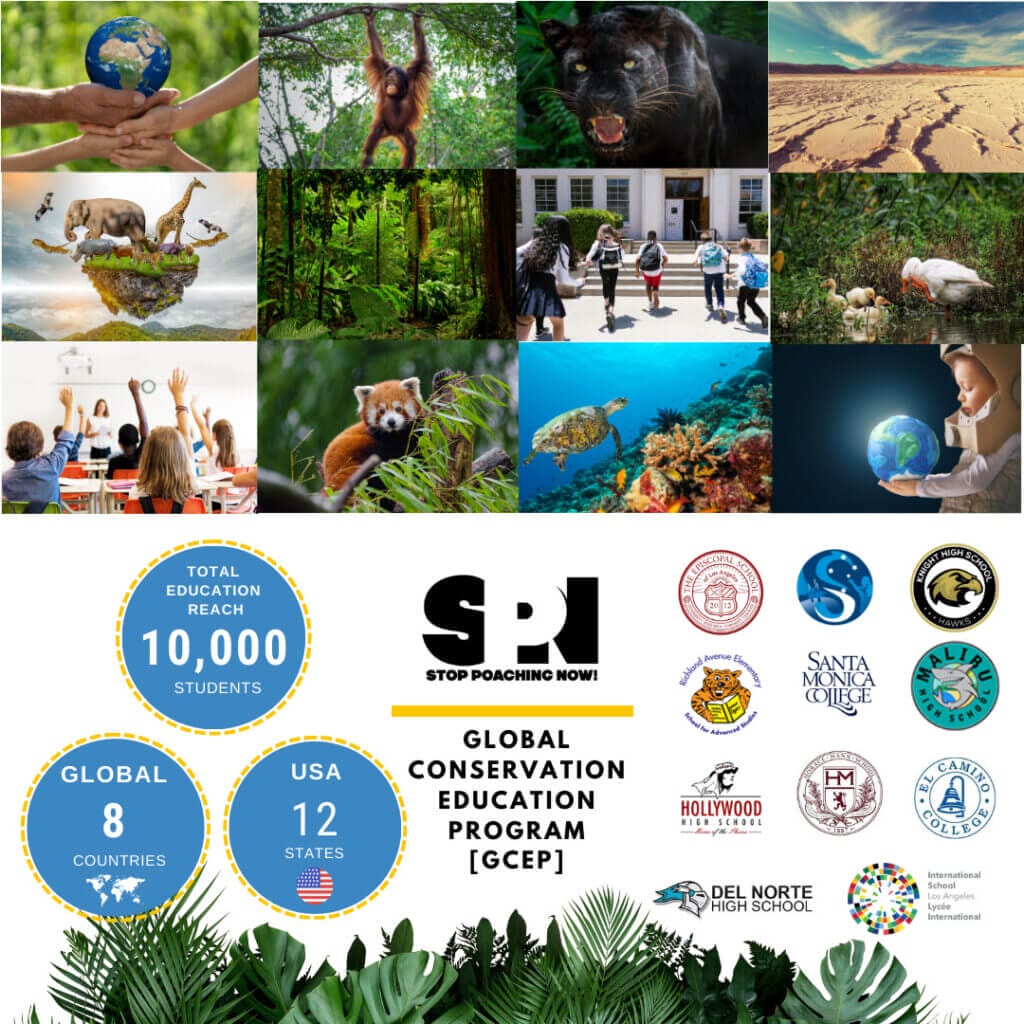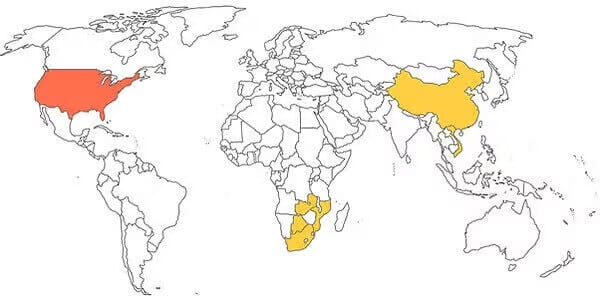Menu
Menu
Inspire and Empower Youth to become actively engaged in both local and international conservation efforts by providing global perspectives in wildlife conservation to students across the United States, and around the globe.
Support Teachers, schools, and partner organizations by providing conservation-oriented curriculum modules that align with the Next Generation Science Standards.
Raise Awareness regarding the costs associated with wildlife poaching and the use of illegal wildlife products on both global biodiversity and the survival of endangered species.
Expand the Reach and accessibility of conservation education by assisting with the conversion of existing lesson plans and educational content into online formats for on-the-ground organizations in Africa and Asia.
Build Capacity for conservation educators in both the United States and developing nations by providing free online course modules in key areas of conservation biology.
Promote the Sustainable use of wildlife resources and reduce human-wildlife conflict by illustrating the value of biodiversity and ecosystem services, such as wildlife tourism, to local communities in Africa and Asia.
Ask about partnering to have your existing content converted into online modules or incorporating our online course modules into your education program.

To be successful, a conservation education program aimed at protecting global biodiversity, and reducing both the supply and demand for illegal wildlife products, must result in three critical outcomes:
1) It should raise awareness regarding the negative effects of the illegal wildlife trade on biodiversity, endangered species, and local communities.
2) It should result in a change in attitudes and perceptions regarding the use and medicinal efficacy of illegal wildlife products.
3) It should result in long-term behavioral change.
Therefore, our education programs are goal-orientated and use evidence-based strategies to raise awareness within the United States, and in both source and demand countries.
United States
Raise awareness through our Classroom Visit and School Assembly programs.
Build strategic educational partnerships with schools, zoos, aquariums, and conservation organizations to leverage resources and maximize educational impact.
Develop conservation curriculum modules for middle and secondary schools.
Foster local community engagement and raise funds for our on-the-ground conservation and anti-poaching partners.
Source and Demand Countries
Raise awareness regarding the negative effects that the illegal wildlife trade has on biodiversity, endangered species, and local communities.
Change attitudes regarding the value of biodiversity to communities in terms of ecosystem services, natural resources, and ecotourism.
Provide support for education aimed at reducing human-wildlife conflict and provide alternatives to poaching through education.
Change attitudes regarding the use of illegal wildlife products and cultural perceptions regarding the medicinal efficacy of illegal wildlife products.
Empower youth to become actively engaged in reducing the demand for wildlife products.
As the organization has grown, so too has our education program. Beginning as a School Assembly program in Los Angeles, we used these events to introduce children of all ages to our world renowned on-the-ground conservation partners in schools and colleges across the city. Our aim was to provide strong conservation role models, and both inspire and empower students to turn knowledge into action by becoming actively engaged in conservation efforts within their local communities and on a global scale.

As the organization has grown, so too has our education program. Beginning as a School Assembly program in Los Angeles, we used these events to introduce children of all ages to our world renowned on-the-ground conservation partners in schools and colleges across the city. Our aim was to provide strong conservation role models, and both inspire and empower students to turn knowledge into action by becoming actively engaged in conservation efforts within their local communities and on a global scale.
Sign up for SPN monthly newsletter so you can stay up-to-date on reports from the field and learn more about the SPN!
Email: events@stoppoaching-now.org
Tel: (561) 203-9160